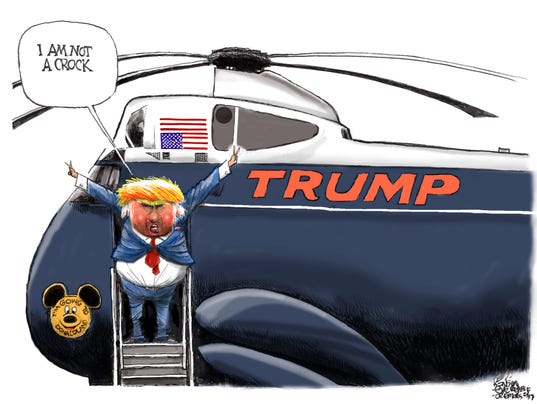
The investigation of Russia’s intervention in the election mustn’t stop.
Donald Trump’s decision to dismiss FBI Director James Comey was, by all appearances, far from justifiable; rather, it was a new attempt on the part of the president to obstruct an investigation with the potential to compromise Trump’s future in the White House.
The president made his announcement to dismiss Comey just days after the FBI director had requested resources to investigate alleged Russian intervention in the U.S. electoral process that resulted in Trump’s victory. Comey had already been under the microscope after Hillary Clinton accused him of playing a part in the election by having reopened, with barely 10 days left before Election Day, an investigation into the Democratic candidate for irregularities in the use of public data in her private email. Yet, in spite of the gravity of these accusations, Trump didn’t lose confidence in Comey.
It’s worth asking why a president, who took only minutes to fire a U.S. attorney general who had publically expressed disagreement with the administration’s immigration policy, needed months to remove Comey from his post. No less surprising are Trump’s comments this Wednesday, when he attacked Comey by asserting that Comey had “lost the confidence of almost everyone in Washington” and that “he wasn’t doing a good job.”
The alarm in Washington makes complete sense. It’s quite difficult to ignore how Comey was, until a few hours ago, the senior official responsible for an investigation that could have grave political and strategic repercussions for Trump, one that examines the increasingly evident relationship between then-candidate Trump and the Russian government. It’s in this context that the adjective “Nixonian,” employed by Sen. Bob Casey to characterize the FBI director’s dismissal, is fitting. Even if Trump does suffer from the same “syndrome of infallibility” as all other populists, he should remember that this sort of thing has been seen before in U.S. politics. Richard Nixon also removed the official responsible for investigating irregularities in his presidential election. The rest is history; Nixon ended up leaving office.
Having been in the White House only a few months, Trump has become accustomed to testing the limits of the law in a way that his predecessors, Democrats and Republicans alike, never did. All the same, the privileged positions held by his daughter and son-in-law, within his presidential inner circle; his theatrical, hard to believe divestment from his private business interests; the unprecedented war against the media; the irresponsible use of delicate legal instruments, such as executive orders; and his unpredictable, erratic changes on positions related to international affairs are not in and of themselves flagrantly illegal, despite not being exemplary patterns of behavior. Nevertheless, obstructing an investigation – one that in no way should be closed – into the United States’ most important democratic process is, simply put, a crime. Trump might have crossed a line from which there is no return.

Leave a Reply
You must be logged in to post a comment.